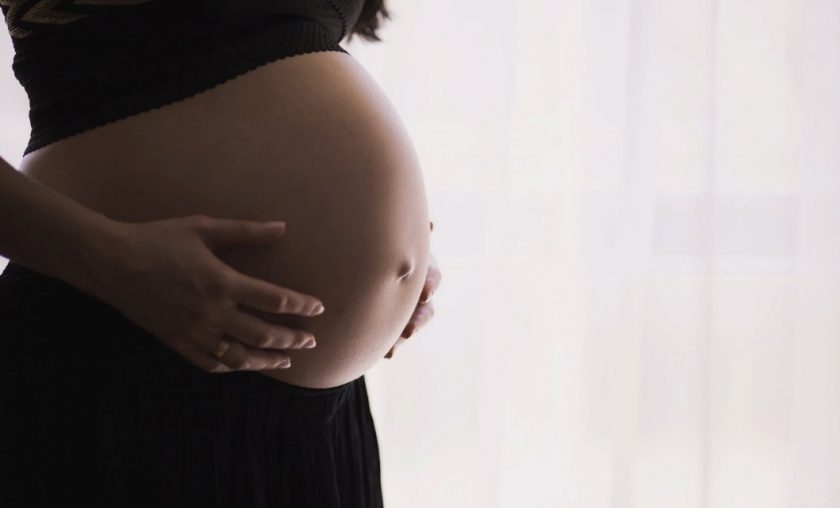JCVI makes pregnant women priority group for Covid jab as new research shows vulnerability to serious illness

There is growing evidence showing that women who are pregnant are at increased risk of serious consequences from COVID-19.
The Joint Committee on Vaccination and Immunisation (JCVI) – the independent expert advisory committee that advises United Kingdom health departments – is calling on all pregnant women to get vaccinated as soon as possible.
The JCVI says pregnant women should now be considered a clinical risk group within the COVID-19 vaccination programme.
“Given that the majority of pregnant women who have been admitted to hospital with severe COVID-19 are unvaccinated, the key priority is to increase the number of pregnant women completing their primary course – 2 vaccine doses 8 weeks apart.” The JCVI has said.
Recent data published by the UK Health Security Agency (UKHSA) adds to the existing international evidence, which has not identified any safety concerns of vaccinating women during pregnancy.
Additional efforts focused on improving vaccine uptake amongst pregnant women will require a coordinated response from professional groups including midwifery, charities and support from local community leaders.
Pregnant women who have completed their primary vaccine course should book their COVID-19 booster if they had their second vaccine dose at least 3 months earlier.
Professor Wei Shen Lim, Chair of JCVI COVID-19 Immunisation, said:
“There is no evidence to suggest that COVID-19 vaccines used in pregnancy increase the risk of miscarriage, stillbirths, congenital abnormalities or birth complications. Having a UK approved COVID-19 vaccine is safer than having COVID-19 itself.”
“Women who are pregnant are strongly encouraged to have a first, second or booster vaccine dose as appropriate in order to better protect yourself and your baby from any serious consequences from COVID-19.”
Eluned Morgan MS, Wales’ Minister for Health said: “For any mother to be, getting their first, second and booster dose of the Covid-19 vaccine is one of the most important things they can do to protect themselves and their unborn baby against coronavirus and, particularly against the new omicron variant.”
“The number of pregnant women coming forward for vaccination has been lower than we would want it to be, and this places mothers and their babies at risk.”
“We strongly encourage all mothers to contact their health boards to make an appointment to have their first or second dose if they have not yet been vaccinated. Women waiting for a booster will be contacted by their health board.”
Dr Gayatri Amirthalingam, UKHSA, said:
“The serious risks posed to women who become infected with COVID-19 during pregnancy have become increasingly clear.”
“We know that the vaccines used in the UK COVID-19 vaccination programme have been highly effective in preventing serious complications and those recommended for pregnant women have a good safety record.”
“I would urge all pregnant women to come forward and get their vaccine without delay. This is the best way to protect you and your baby.”
Dr Edward Morris, President of the Royal College of Obstetricians and Gynaecologists (RCOG) said:
“We welcome the announcement from the JCVI that recognises pregnant women are more vulnerable to severe illness should they get infected and will therefore be prioritised for vaccination. This is something we have been calling on the JCVI to introduce and we are pleased they have listened.”
“It is vital that pregnant women can easily access the booster vaccine to ensure that a good level of protection against COVID-19 and the new variant is maintained.”
“Women who do develop symptomatic COVID-19 have an increased risk of giving birth prematurely, and stillbirth. The latest data from UKHSA shows only a fifth of women who gave birth in August were vaccinated and we would strongly recommend that all pregnant women get vaccinated as soon as possible, as it’s the best way to protect themselves and their baby against COVID-19.”
“We encourage the government to consider all available options to ensure that pregnant women are given priority when booking their COVID-19 vaccines.”
Gill Walton, Chief Executive of the Royal College of Midwives (RCM), said:
“The announcement is good news. The RCM together with the RCOG and other organisations have been calling for pregnant women to be prioritised in the vaccination and booster programme. What is crucial now is that women are able to access vaccination hubs or clinics close to where they are receiving their maternity care.”
“We are aware of reports of pregnant women waiting for hours in queues at walk-in centres or even when they have appointments and this is unacceptable.”
“Providing clinics in or very near antenatal clinics, staffed by vaccination teams, is a great way to encourage uptake and will also ensure that midwives, already in short supply, aren’t taken away from their core work.”
“It’s also vital that all vaccinators and vaccination centres are not only aware that pregnant women are recommended to be vaccinated and have the booster and pregnancy, but are trained in supporting them through the process too.”
“We know that the best way to protect pregnant women and their babies from COVID-19 is through vaccination. That’s why the government must take immediate action on the recommendations we have laid out with the RCOG to ensure that there are no barriers for women in accessing the vaccine.”
Professor Marian Knight, Professor of Maternal and Child Population Health at the University of Oxford and chief investigator of the UKOSS national study of pregnant women admitted to hospital with COVID-19, said:
“This new data clearly shows that outcomes of COVID-19 for pregnant women and their babies are getting worse. However, it also shows the very strong protection that receiving a vaccination provides.”
“With several hundred thousand pregnant women across the world having received a vaccine, it is clear that vaccination in pregnancy is safe. As infections increase, pregnant women can be reassured that getting a vaccine is the best way to protect them and their babies.”
Spotted something? Got a story? Email: [email protected]
Latest News
